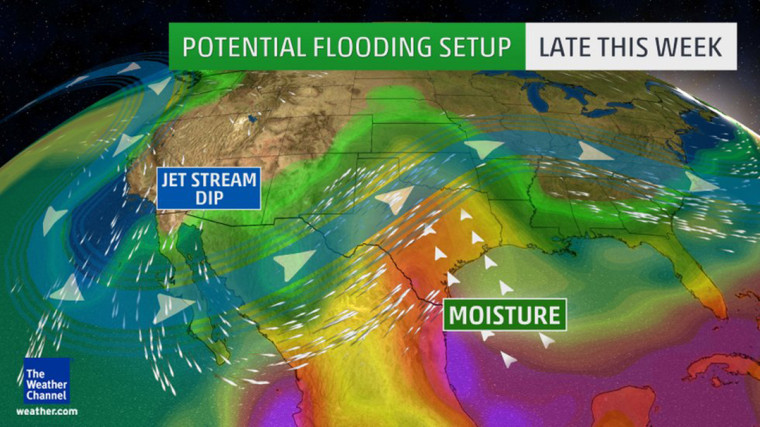A sprawling storm stretching 1,200 miles from Minnesota to the Carolinas was set to bring damaging winds and soaking rains to more than a dozen states on Wednesday.
The vicious cocktail of two systems — one that brought flooding to the South last week and another that came down from Canada — joined forces Tuesday and were set to increase in power in size Wednesday.
Winds of up to 60 mph were expected in areas of the Midwest, Plains and Northeast.
"There will be some gusty winds and these could certainly be enough to topple trees and cause power outages," Weather Channel lead meteorologist Kevin Roth said. "This system is a big, sprawling storm system that’s going to be very wet and windy."
The rains were due to strike in concert with the full moon, and some areas of the East Coast could be hit with coastal flooding, Roth said.
However, he added that widespread flooding elsewhere was unlikely. Even the wettest areas — two bands from Illinois to upstate New York and Georgia to Maine — were unlikely to bring more than three inches of rain through Thursday, according to the National Weather Service.
To compound the misery of those being soaked and buffeted, the storm would also bring wind chills of as low as 17 degrees in some parts of the Dakotas on Wednesday, and wind chills of freezing or colder in Chicago, Minneapolis and Des Moines on Thursday.
The storm was set to move out over Canada by Friday — only for another drenching system to move in over already-saturated Texas.
"It's rinse, wash, repeat — here comes another storm," Roth said.
The eastward-moving storm was forecast to arrive over western Texas and New Mexico on Thursday, before moving to cover most of the Lone Star State, as well as Oklahoma and Kansas on Friday, and into Louisiana, Mississippi, Alabama and Tennessee on Saturday, according to The Weather Channel.
"Many of these areas are still recovering from last week's rainfall so it could cause more problems," Roth said.

